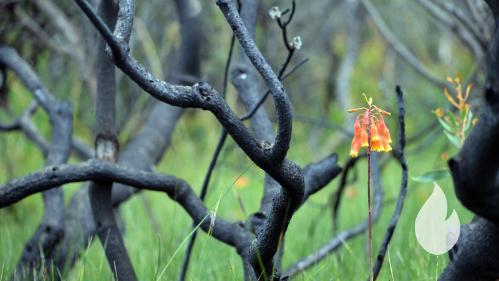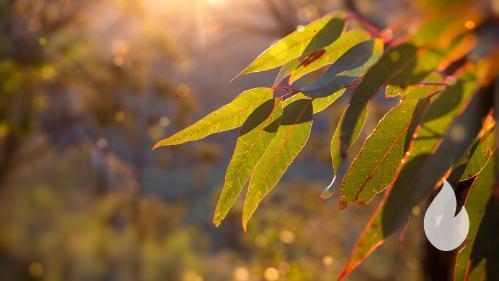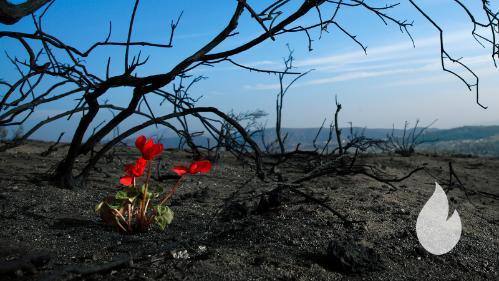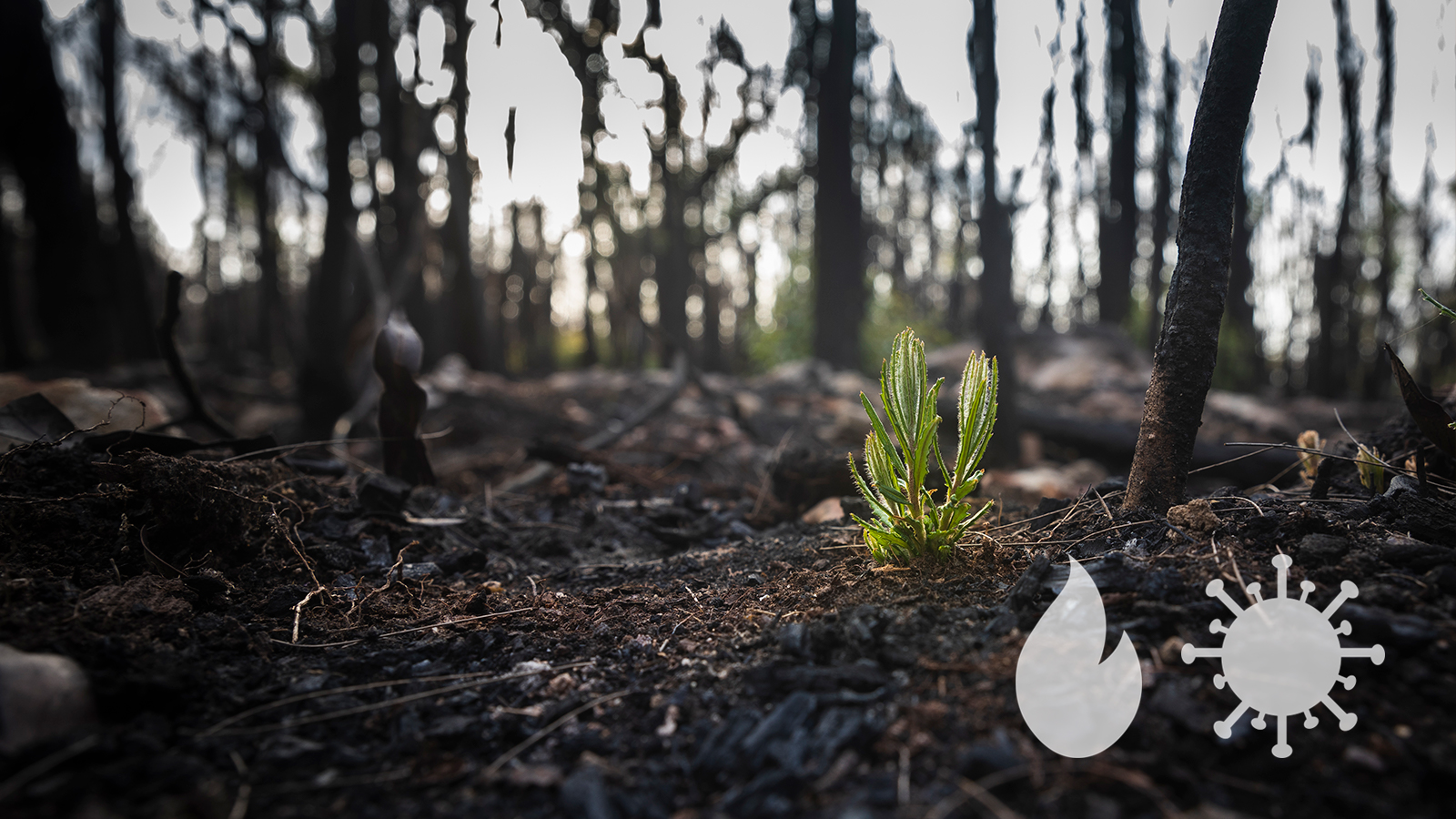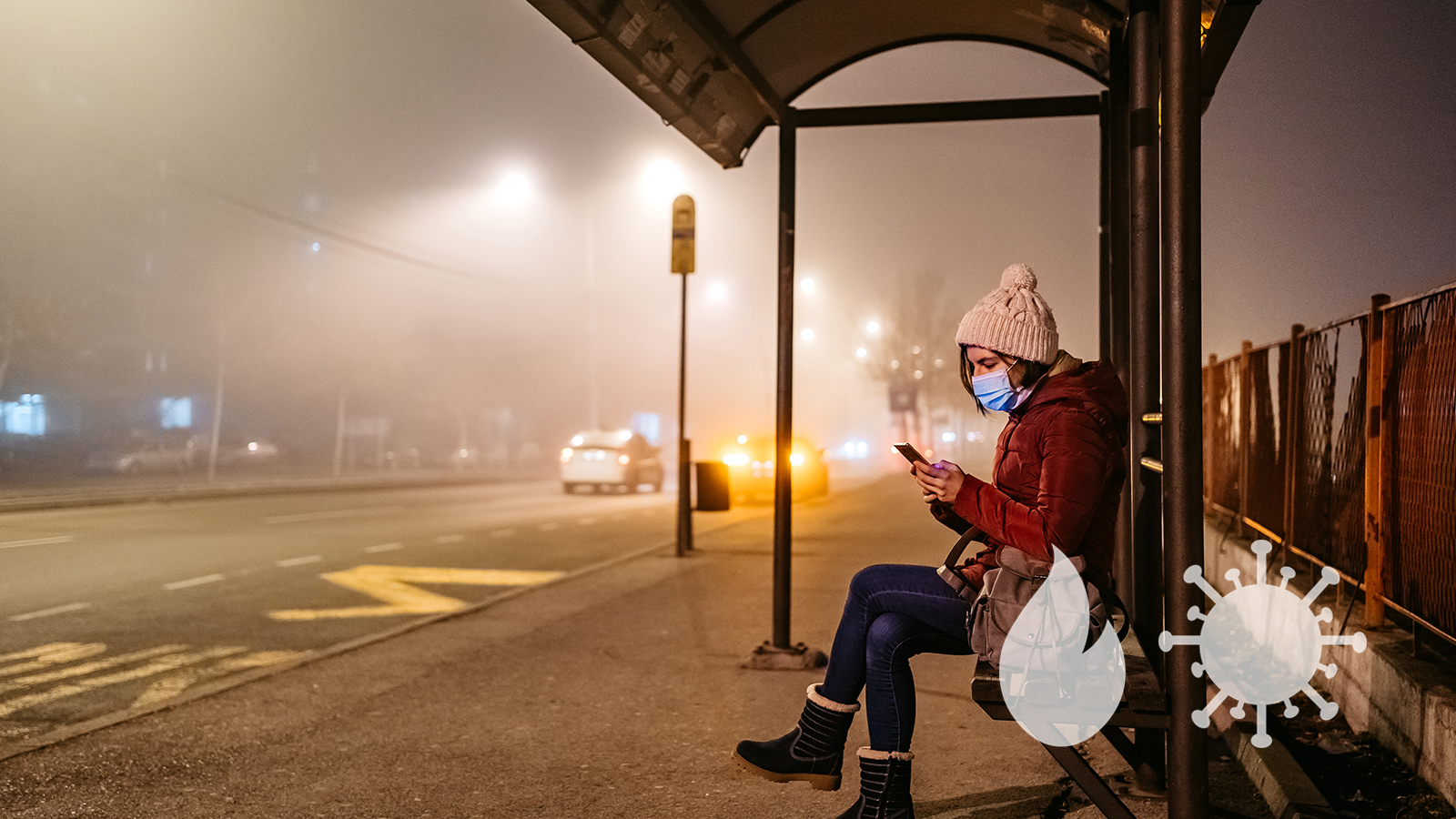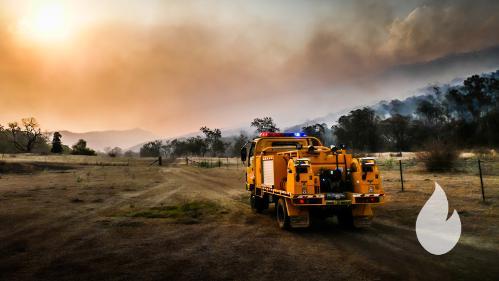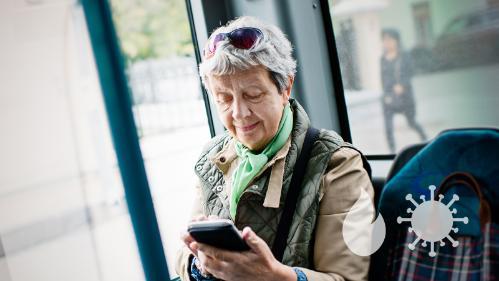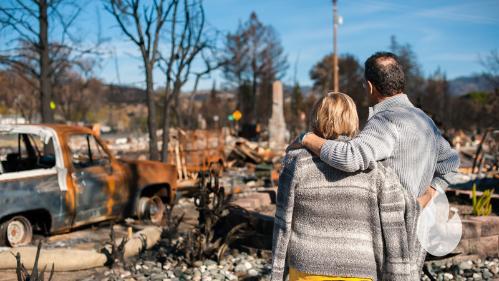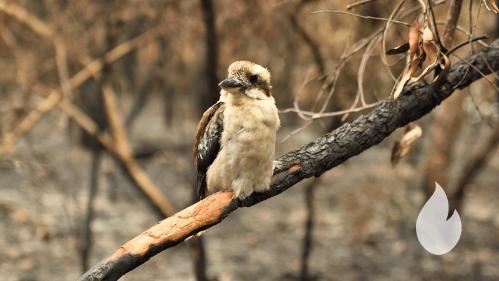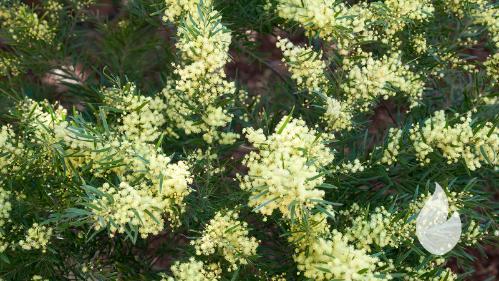[00:00:03] Welcome to In Conversation with Global Challenges. And we've got a great lineup of speakers who I'll introduce in in a minute. My name is Sharon Robinson. I'm the executive director of the Global Challenges Program here at the University of Wollongong. And this is our interdisciplinary research program. And we're very glad to be talking to everyone today. Thank you all for coming and listening. And I'm going to go straight to Dr.
[00:00:32] Anthony McKnight to give us a welcome to country. Over to you, Anthony. Thanks, Sharon.
[00:00:41] Firstly, I'd just like to say I respect country, the country that I'm on and the countries that everyone else is who's viewing this today. To share my respects. To those countries and. And just to get everyone just to think about something that they're thankful for. For this day.
[00:01:09] Whether it was the cool morning where you can kind of snuggle up, not be too hot.
[00:01:15] Well, the birds that woke you up. Well, you heard when you're waking up, you know, one that's still singing here, he now in the background of May. Thank you for the son that's now giving me Walt. All those ancestors, though, those ancients that do so much for us each day.
[00:01:33] That we need to be thankful for.
[00:01:38] So I'd just like everyone, just never know. A few seconds is just thinking of something that from country that is thankful for being the seafood diet last night. That is now giving them energy and minerals and a sense of being satisfied. Just let people have that little bit of time to give thanks. And I've just asked all those ancients and their ancestors that you just pray that they'll be part of our that we have them in mind with us. We're doing listening to each other on whether people are talking that we consider all these.
[00:02:27] These entities that provide us so much on this day. So thank you, everyone.
[00:02:35] Thank you, Anthony. And I'm really thankful for the beautiful fig trees that we've got outside on the campus of the University of Wollongong and the wind blowing through them. So I'd like to introduce off five panelists for today. And we've got a range of panelists from across the region. People are joining in from all over the south coast. But as you just heard, that that welcome to Country was by Dr Nick. Dr. Anthony Knight. And he researches Aboriginal English terms and country and how that central in in research and implementing holistic Aboriginal approaches to education. He leads one of our global challenges projects, which is called Stories Affording Pathways to Healing, and that's enabling communities to share stories and how these stories can set serve as ways of recovering and building resilience. So welcome, Anthony. We also have some retire from the Who's the campus manager at the University of Wollongong's regional campus of Paga.
[00:03:41] And Sam was instrumental in allowing that campus and enabling that campus to be used as an evacuation shelter during the during last summer's bushfires. And so we're really grateful to Sam for that amazing work that they did over the summer. And it's great to have participants and colleagues from our regional campuses joining us today. So welcome, Sam. We also have Joshua, Dr. Joshua wishe Whitaker. And Josh is also a lead on one on one of our projects that was funded this year. He's interviewed hundreds of people affected by bushfires, including the 2009 Black Saturday bushfires in Victoria and the 2018 reedy swamp taught Tathra fires and more recently, the 20, 19, 20, 20 New South Wales bushfires. And so far, his research teams have conducted 160 interviews with people's affected by the 19 20 bushfires in a major research project with New South Wales Rural Fire Service. So welcome, Josh.
[00:04:49] And finally, my colleague, Dr Lorna Moxham from who's a professor of mental health nursing at the University of Wollongong. And Lorna is the lead of our living well, longer challenge. And she's been a nurse for 40 years. Thirty eight of those years specializing in mental health nursing. And she works on a number of boards looking at mental Reece, looking at mental health, and is co-founder of Recovery Camp, which is one of the programs which has been has won awards for the way in which it intervenes in psychosocial educational programs and giving nursing students the opportunity to work with teams.
[00:05:37] And as part of their training, but also known as being using that as a research project.
[00:05:44] So Global Challenges is University Wollongong's Interdisciplinary Research Program. And we bring together researchers, community, government and industry to try to solve some of the world's most pressing problems. But we're also really conscious of the way in which our research is important, too, to our local communities. And this year, in particular, because of the bushfires and then covered, but especially because of the bushfires, we devoted most of our research funding towards supporting projects that would help to rebuild the south coast and help to ensure that we do a better job in future in terms of both our resilience to climate disasters, but also hopefully progressing action on climate change. So that's where we come into this from global challenges perspective. And just to start off with, I'd like to say that as a climate scientist of more than 20 years researching climate, but mainly climate change in Antarctica, I always knew that Australia was vulnerable to climate change and bushfires. But even though even though I knew that this was going to happen in my head, I was really shocked by last summer. And I think that's true for a number of climate climate scientists that we knew that this could happen, but we were still really shocked by how it eventuated last summer. And so what I was shocked by that devastation. But after this summer, I hoped that that would mean surely we would then start to take action on climate change. So it seemed like it was inevitable that that would be the consequence of that terrible summer that we we experienced. And I want to make sure that that is the case, that we we do take action on that so that this is not some. In 20 years or 10 years time, we look back on and go, we. We had that terrible summer of 20, 20, and we still didn't actually take the action that was needed.
[00:07:45] Then along came COVID and it was like the whole world pivoted and once again showed that when people really want to work together and change and do things for the greater good, we can do it. But we've done. And so we've done that for konbit. And we've we've worked amazingly hard to make sure that most people in Australia are safe and to try and to look after each other and to have that sense of community. But we haven't. We still are not doing that. We're not working fast enough in the area of climate change. And so we need to both from my perspective, I would say we need to both build resilience for these for immediate disasters that we're going to have like last summer, because they are going to happen even if we go to zero emissions. Now, we're still going to have bad summers in the future. We're going to have bad bushfires. We're going to have extreme heat events. We're going to have we're still going to have droughts. But if we don't do something about climate change alongside that, we're going to be on this ever increasing escalator where they just those extreme events just get more extreme and more damaging and and ultimately we'll be just too difficult to deal with. So we have to do both of those things. And I think that's where I've I hope that this conversation, which is around, you know, what do we need to do about climate change? What do we need to do about about building resilience in our communities? And also what do we need to do to look after each other so that we maintain our mental health for that? So that's what we're going to try and do. And we have a number of speakers for you who are going to give their perspective on that. And I'm going to, first of all, ask Lorna to talk to us a little bit about climate anxiety. And I've probably expressed a little bit of that now because I did feel very anxious during last summer. But how do we how do we deal with that climate anxiety and what how do we turn that into us into action action based on positive, positive responses. So over to you, Lorna.
[00:09:56] And some Sharon and the first thing I want to do is, is help us to understand and I suspect that most people on this site, our conversation with feel this one. But climate anxiety is actually a real phenomenon.
[00:10:13] So if you're familiar, climate anxiety, it's also known as eco anxiety. It's actually described by the American psychological society as a chronic fear of environmental doom. So it's that projection.
[00:10:27] It's that it's that worry, that anxiety for our children, for our grandchildren, for our great grandchildren about what's going to happen going forward and not too far forward, you know, reasonably closely as as Sharon's talk about climate anxiety is or is a fairly recent psychological disorder. But it's actually affecting an increasing number of individuals who worry about environmental crisis. So it's important to talk about eco anxiety isn't pathological. It's actually a legitimate reaction to climate crisis.
[00:11:05] So eco anxiety, despite the distress that some people may experience, is actually a demonstration of empathy. What it does, it signals a deep caring about our planet and a deep caring about our future. And if we think about Greta Thunburg, she whether you agree with her or not, she deeply, deeply cares and demonstrates this when she talks about our planet's future. And that's not to say that people who don't have feelings of anxiety don't care. They do. It's just that for some people, the depth of caring manifests itself as anxiety. So as I've said that it coincides is a reasonably, reasonably new in my field, my fear. But for millennium, people have lived with an experienced anxiety. People can be anxious about all sorts of things.
[00:11:58] And it stands to reason that issues people are anxious about will change and will be informed or will drive or will be determined by what's happening around them.
[00:12:08] And Sharon alluded to it covered 19 is a perfect example. No one was anxious about covered 19 in 2015, for example. But this year's global pandemic has raised people's anxiety levels and we're seeing massive increase in people presenting to emergency departments, mental health nurses, psychologists, for example, with anxiety brought about or exacerbated cope at 19. So climate anxiety is real. It's something we need to talk about and it's going to get worse as the climate declines. Sharon.
[00:12:45] Thanks, Lorna. And I forgot to say at the beginning, this is supposed to be a conversation, so if you have questions, please put them into the Q&A and I will try to answer them as we go. But we'll also have a as a session at the end where we'll answer some of those questions live on the on the seminar. So I'm now going to ask Sam to talk to us a little bit about the experience at Bega during the last summer's bushfires and how did the campus get involved in that and telling us about it from your own personal experience? Because as we all know, many of you will have been intimately affected with the bushfires last summer. And Sam was one of one of you in that Rischard.
[00:13:35] Thanks, Sharon. Talking about climate anxiety, I think I'm having Zoome anxiety at the moment. Excuse me if my voice wave is a little usually I'm just talking to my colleagues that I sense this other people out. You know, in terms of the the bushfires, I've been a country girl pretty much all of my life. I grew up in this area and my family farm is and I returned to the area after university. So bushfires and the threat of bushfires is something I've lived with probably for a long time and been aware of, certainly had the impending sense of doom coming through last year as a local person watching. The land dry add incredibly and feeling that bushfires will coming. But like you, Sharon, I. I actually couldn't grasp the enormity of what was about to happen. I certainly didn't expect to be in the middle of an enormous firestorm that felt like the end of the world. It was the most terrifying thing I've ever been through in my life. And I never want to go through it again. And my experience was probably mild compared to many other people in my community and friends and family who who lost family members. They lost loved ones. They lost homes. They lost animals. They lost their businesses, their livelihoods. People lost everything. And it still makes me very emotional to talk about it. As you can probably hear. And that's to be part of being our community. We're kind of getting used to everyone being emotional all the time. It's become part of any normal that we have tears in our eyes when we talk about things.
[00:15:30] Because it was just such a horrific experience.
[00:15:35] The feel was the big thing. The fear not being in control for me and for all the people who came to our campus and evacuated to our campus, all had in common. Unlike COVID, which I feel quite in control in comparison, I can choose whether I leave my home, I can choose who I associate with. I can choose to wash my hands. I can choose to hide. I can choose so many things. But with the bushfires, I had absolutely no choices. I felt responsible for my children and my parents and my community and my family. And I couldn't control that. And that was why I think for me, the most terrifying thing about it. And now when I say smoke or smell smoke or see orange skies or any of those things, I couldn't watch. The ABC's weather phenomenon program last night is just still true role. And those things trigger fear and anxiety. And it's certainly not anything uncommon. And as I said, people have been through a lot worse than me. And everyone has different experiences. I will say that I've found that people who had been through any type of trauma in the past, whether that was fires or grateful loss or accidents or anything, found the fires more difficult to cope with because it was like trauma upon trauma. And I can feel that myself, that if I have to go through something similar again, that that that trauma will be hard. And because I've been through this one. And because our community have been through this, we're sort of trying to shelter each other from other traumas in terms of. Action and moving forward. You know, it has built for the community and many of the community that it has overtaken what happened. And we felt very, very supported by the white community in the world at the time that the fires happened. And, you know, and we had no power. And the army was turning up with generators and all sorts of things were happening. And then there was outpouring of love and donations and felt like we're on a really good, tragic trajectory and the government as well to listen and move forward. But I think you right, COVID has in many ways taken the eye off that. But sitting here in the big valley, it looks beautiful and green at the moment. But you only have to go off the road a little way and find areas that have no regrowth. There's no trees. There's no animals. And see that devastation and know that we need to do something about that. So that's a big feeling of anger. And a lot of people and I think on the positive side, it's also been very community building and very rewarding to be a part of the small community where I support each other. And it's been very rewarding to be a part of the global challenges research projects as well, because it feels like we're putting all of these amazing brains and and research and energy into something positive and helping find some not solutions, but supportive strategies or research that will help us to make changes into the future. So that's been really great for my colleagues and friends and family in the Big Valley. Any time now that the bushfires is actually mentioned in news or research, that that is really great to see. It means that people haven't forgotten. So, yeah, that's that's probably my story for now.
[00:19:30] Thank you, Sam. And we haven't forgotten you, and that was a really nice Segway into the work that Josh has been doing because of, because perhaps now Josh can talk to us a little bit about some of his research and experiences around interviewing people who've lived through the experience of bushfires all across eastern Australia.
[00:19:51] And also perhaps tell us a little bit about the research that you're doing at the moment. Thanks, Josh.
[00:19:58] Sharon. And thank you, Sam. Yeah, look, I've been involved in a number of studies where our aim has been simply to to listen to people's stories and experiences of pushbikes. And, you know, probably way beginning with Black Saturday. And, you know, those tragic fires that killed 173 people and destroyed, you know, over 2000 houses through to some smaller fires that have that have affected a handful of houses and maybe a few farms.
[00:20:32] And I guess in terms of how people experience those events, I think it's important to remember that.
[00:20:41] You can, you can.
[00:20:42] We often think about Black Saturday and the black some of that. We've just had. They are very significant events. But people experience the same sorts of loss and grief and trauma from much smaller events, too.
[00:20:57] So I'm always thinking about, you know, for example, people who went through the really swamp fire in 2018 in the really swamp and tough for areas who were threatened again last summer. And some of the people we've been able to interview in our most recent research were actually people we spoke to in the radio swamp and Tathra areas. And they're still recovering and trying to rebuild and going through a lot of challenges.
[00:21:25] So, yeah, I'd really emphasize that it's not just the big events that we should be looking at and are concerned about, but the smaller ones, too. But I guess my experience of interviewing people is that people overwhelmingly want to tell their story and they want to be listened to. Most people find it to be quite a cathartic experience, and for many it might actually be the first time that I've sat down and actually spoken about what happened to them or their experience from beginning to end and had someone who wants to hear the whole thing. Often people are talking about particular moments, whether it's an evacuation or if their house was lost. But actually, to go and talk about that whole experience is people often tell us that that was really valuable. And they also want to help people who might be faced with similar situations in the future. So while inevitably, when youre speaking with people who have suffered loss, whether it's a loved one or or a home or pets and animals, you know, when people lose their pets and animals, whether they're domestic animals or livestock, that can cause significant distress. So you're always going to be dealing with some degree of trauma and distress. But I think. As researchers, it's your job not to exacerbate that, but you certainly have a responsibility to listen to it as well. And that's often what people want to talk about.
[00:23:02] Thanks, John.
[00:23:04] And what we're going to do now is get her get some information from Anthony and Launer on how some of the ways that we might be able to deal with some of this anxiety and trauma. And I might go first to Anthony, because one of the projects that Anthony is leading is looking at how we can how we can support and communities to recover and build resilience.
[00:23:30] But the way in which we can do this using traditional knowledge and traditional expertize. So building on those thousands of years of of of the indigent dangerous traditional owners and how they've dealt with with a changing climate over over millennia. Thanks, Anthony.
[00:23:53] Thanks, Sharon. It flows a mile from what Justice just said.
[00:24:00] Everything has a story. Not just people. And often the focus is on people.
[00:24:09] Every insect, every bird, every plant, every animal, every fish, every whale, whatever has a story. And we are interconnected with all those stories.
[00:24:27] And for me, we've got to you've got to go back to all those stories first. If you look at our creation.
[00:24:37] All those little things were created. A man and a woman and man were created last. But the focus at the moment is so much on the human generally, not everyone, but generally the focus is on the human. But we have these interwoven stories.
[00:25:01] Now, a plant. An insect.
[00:25:04] A bird. Your dog, your cat. Yeah. They never lie to you.
[00:25:11] I never mislead you. They never disrupt what you're doing in a way critical that.
[00:25:21] You can trust them.
[00:25:24] So you just got to sit there and observe and learn their stories and how you're connected to those stories, how you relate to those stories.
[00:25:34] And how you can heal yourself is through healing and being a part of this story.
[00:25:43] I've spoken to a number of people that have said what kept me sane after the fire was actually going out trying to look for koalas and to take care of the animals who lost all their food. That really helped their stress level. And the destruction, I suppose they might have called it.
[00:26:02] But for me, that is healing self. With looking, taking care of country, you're actually taking care of yourself. And taking care of self is taking care of country. If you look at it that way.
[00:26:19] So what our research is trying to do in a way, is use a story.
[00:26:26] Around from country. That's being here since basically the beginning of time.
[00:26:34] To remove, in a way.
[00:26:38] That corner of selfishness of humans that can exist and that we're part of a bigger thing, that we're a part of something that's much greater than us. And then we can share stories through the. Through learning from those birds in six trees. I recently went for a grant with some other colleagues in my community over an Aboriginal community organization, and we weren't successful. That's fine. That's part of how things go. But our main statement was we're gonna learn from the birds themselves.
[00:27:16] On how to help those birds come back. And exist in that space that was damaged by fire. OK. Our knowledge comes from Country Hour, healing comes from country.
[00:27:33] So we need to observe and learn from those entities that lie, that mislead. Don't try and, you know, dominate in a way.
[00:27:47] How much is happening on that political level that I think Sam was talking about at the moment, that competitive with governments and people and I'm not competing for funds or you got funds? I am. What funds yet?
[00:27:59] The whole.
[00:28:01] When it focuses on the human. So for me, that's that's important. The story that we're going to use is about animals fighting. And our stories are still relevant as they were, as they were eighty thousand years and upwards. The animals are still fighting today to get food. To get shelter. To be able to have a life with this devastation that came from, in a way, our human behavior. That's why we are in this situation. So we can heal nature to heal ourselves.
[00:28:46] I think that I'll finish that. Thank you. Thank you for your is.
[00:28:54] Thanks, Anthony. And I think that's really true because we can't people can't be healthy unless we have a healthy planet. So we need we need to look after country, as you say. I'd like to go to Lorne now to talk about ongoing trauma as a as a mental health nurse and with all her rich experience in this area about how we cope with these ongoing disasters. So people who experienced fires and then floods multiple so multiple extreme events and multiple disasters happening within a year. And then on top of that, there's been covered. And how how communities how that covered crisis itself helped meant meant that people couldn't necessarily come together. And so I think that's that's also affected how people might heal from it. So perhaps we can hear from Launer on that.
[00:29:52] Thanks. Thanks, Sharon. And thanks, Anthony. Our First Nations people bring so much wisdom and we we need to sit here and to listen.
[00:30:08] Trauma doesn't disappear overnight within a week or two. It doesn't go away after the fires have been extinguished, after the floodwaters have abated. It doesn't go away after the rains have quenched the harsh soil. It stays with us former stays with us for a long time and each person deals with it differently. And Joshua talked about, you know, it's not the big traumas. I mean, obviously, people have to deal with big traumas. But, you know, people are traumatized by what other people may judge as small events of what small for someone isn't small for someone else. So it's the recognition of the trauma, not the size of the event, that may or may not have caused that trauma. And that's really important to understand. I think something that Anthony also talked about was providing a safe space in that, and I'm not necessarily convinced that all humans are good at this. We we do judge. We compete your traumas less than my trauma. My trauma is more important because my fire was bigger or whatever reason. And we need not to do that. We need to sit back and listen. We need to sit back, provide a safe space to hear stories. And as Anthony said, don't judge. And that's that's really quite hard for humans not to do. Sometimes I think we're innately judged mental people. But being aware of that language, language is really, really important. And I don't think we pay enough attention to it. It's not at all helpful to remind people that the disaster has finished or that their trauma was 20 years ago, or remind people saying things like, you know, you've lost your house, but you're still here. You know, it doesn't matter. It's about the trauma of the loss, not the fact that they've lost the house. I've lost them. But aren't you lucky because you're still with your language like that is is not helpful. So being really mindful of that, something that comes to mind around the length of trauma is is actually Queen Victoria in her grief for her husband. Once Prince Albert died, she grieved for the rest of her life. And a lot of people will say things like, well, you know, it's been 10 years now or you measure five, 12 years ago with a cyclone or the flood or so. It's a good reminder that people are entitled to grieve and entitled to live within their trauma for a long time. You used the word cope. Sharon. And I think sometimes that's what we need to think about, is he's not packing the trauma or forgetting about it or thinking that it didn't happen is is the ongoing coping strategies. That's what we really need to focus on. And Joshua and Anthony and Sam have all talked about talking helps. And I know I'll come back to that a little bit later.
[00:33:19] So covered. I don't know about other people, but on over and and and up. A lot of people are. We see it all the time. And what COVID has done, it's done some positive things in it around people coming together. But what it's done is it's prevented people from gathering in many instances in face to face. Humans are a nightly herd, animals. And our desire to gather with been with family on country, with people we trust and love has been severely impacted by COVID. What some people have done on many people and many communities has successfully done they've found other ways of gathering. But we need to gather whether we gather on Zoom, whether we gather now that restrictions are being lessened, we gather face to face, but we need to gather and covered who's put the live on that. What we do need to remember too, is yes, we've had COVID and it in itself is a global pandemic. National natural disaster. But it's taken it's taken the spotlight of our ongoing trauma and our ongoing disaster. So continuing to have those conversations, whether it's Zoom, whether it's phone, whether it's however you choose to do it, and understanding what your ways of coping. And there are healthy ways of coping and ways of coping that may lead to things that aren't healthy. So drinking taking drugs might not be a healthy way of cutting. It may help people cope. But in the long run, it will exacerbate trauma or bring about perhaps more trauma. So understanding your coping, but going back to Joshua and Anthony and Sam. It's talking. It's gathering. It's respecting. It's trusting. Thanks, Sharon.
[00:35:27] Thanks, Lorna. And perhaps Josh could, from your experience. Give us some information about what you found from your research is the other mental health support networks that are available and actually helping people?
[00:35:39] And then that.
[00:35:41] I think there's a question about whether the climate, whether the disasters are changing people's perceptions of climate change and also what we need to do about that. So that's two questions that.
[00:35:58] Sharon, look at a group with with Lorna about how important talking is, and I guess what we're hearing we've now interviewed or we've actually conducted almost I think we're about one hundred and ninety five interviews with people across New South Wales who are threatened or affected by bushfires last spring and summer. And in terms of their recovery, you know, we are hearing some things that were positive about covered people who lost their homes, for example, or who had substantial damage to their properties, found that they were at home, more able, had more time to for some of those jobs, like clearing debris and building fences and things like that. And also a bit of time to reflect and to be with their family, which for a lot of people has been quite important. But on the flip side, as Lorna mentioned, the lockdowns prevented people from coming together. And all social media and Facebook and things like that can be useful platforms for having those sorts of interactions. Nothing can really substitute face to face contact. So I think a lot of people, particularly in the sort of three or four months after or the first three or four months of this year, that was a real issue for a lot of people.
[00:37:24] And the other thing that that I've heard a number of times was that. Counseling and other mental health services needed to be provided online or by telephone. And a lot of people have told quite a few people have told us that they they held off accessing those services because they'd prefer to do it in person. And I think there's been a whole range of issues around demand for those services.
[00:37:53] And and because of COVID, it the ability to provide them at a level that is required. So there's a lot of ongoing issues. And those are starting to ease up. But, you know, I just emphasize that from all of our research with bushfire affected communities, recovery for want of a better term is a very long process. It's you know, we're often coming across people who don't recognize that they might need help and certainly don't go looking for it. Up to 18 months after a fire. So that really underscores the importance of providing those services. Longer term recovery is not something that's over and done with in a two or three month period. In terms of climate change, we've had a lot of people talking about climate change. We've had just as is as with society, that full spectrum of views. But, you know, we were reflecting the other day that the difference between the two thousand on Black Saturday fires with climate change barely rated a mention in our interviews.
[00:39:03] We don't ask people specifically about climate change because we use a very open ended interviewing method or approach.
[00:39:12] But there's a lot of concern about climate change. It seems to us that we've just had. And what that means for the future. So there is a lot of concern, and that is to us at least, quite new. We also saw a lot of that at 2019, really swamp fire, of course, which was a very. Damaging fire that that burned and destroyed a lot of property. And Bush at a time in the year March, mid-March, that we wouldn't normally expect a fire of that of that severity.
[00:39:48] So it's a it's a big issue. And it's you know, people are talking about it.
[00:39:56] Thanks, Josh.
[00:39:57] And so for our final information, information and ideas, I think I'll go go to Sam to talk to us about how the community of Bega is 12 months on and also how she feels that some.
[00:40:17] With the climate change issue is being addressed and whether there's enough action, which is one of the questions that somebody is asked. So do we think there'll be positive reform and policy now that we've experienced these disasters and that they're becoming more frequent? As an as Josh said, it's something that's, I think, becoming more and more apparent to people that this is an issue.
[00:40:42] Thanks. No worries.
[00:40:45] Very hard to speak on behalf of your community, because as so many people have said, everyone's dealt with the fires differently and dealing with recovery, for want of a better word, differently.
[00:41:00] And as as Josh mentioned, you know, I myself have friends and family who have not sought support yet. And I'm beginning to feel now that they need to the time after the fires was so busy that I I do understand that I did it myself, so busy fixing things and trying to help my friends and family fix things and just be safe. That the mental health capacity sort of came second.
[00:41:31] And, you know, it's like anything you leave it for a while, you think it'll go away. It better by itself. But with this, I found personally it hasn't.
[00:41:42] And talking about it does does help to, you know, talking about it a lot. For me personally, doesn't help. You know, it's good to let it out and talk about it every now and then. But I do like to also think about other things and not let it consuming. So, you know, everyone has had different reactions. And speaking just to one of our local psychologists the other day, and they have been so busy and so overwhelmed with first time referrals. So even now. So 10 months on, people coming to see a psychologist for the very first time after the fires that really needed to and had a lot to talk about.
[00:42:24] So, you know that everyone is dealing with things in a different way in terms of, you know, climate change in action, because I work with young people in my role at the university big campus. It's felt to me that climate change is very much been on the agenda for quite a long time.
[00:42:46] And it's our young people who are leading that in our regional areas and also our farmers. I feel like, you know, there's this kind of misconception that farmers, climate deniers. But for me, I find that there's some of the people who are most in tune with the land and country because they work and live on it every day.
[00:43:04] And they've been calling out for help and reform for a long time. So, you know, for our community, I guess we're just hopeful. Well, most people I can't speak for everyone hopeful that that there will be more action because there's been such a big evidence of such a big piece of evidence. It's very difficult to ignore. But, you know, once again, it does feel like climate and other political issues take precedence for some for a reason. And for a reason sometimes. And other times for not fathomable reason.
[00:43:41] So it's frustrating for the local community in terms of that. But, you know, there was so many local bagel high school kids came out to have a demonstration just recently about climate change, about wanting to have their voices heard. And I work with you 12 students who were going to study politics with this specific goal in mind that they want to become. I change my car and they want to change things. And that's really wonderful for me to be able to sit in here. And that's the privilege of my position as well here at the campus. And so that's that's really great. And I like to look towards those positive things as well as working with our local community. And I was privileged to attend a healing of country event down here. Not long after the fires, we Uncle Max and a number of local elders, which was so beautiful and positive and and healing personally for me. And I took my young boys at the time. We would give a television, an animal that we've been now placed in our care to look after. And my kids have really taken that to heart. And we've been researching the cockatoo, which was an animal. I think that's because my kids are talking a lot and how to bring that back to our property. And that's happened and that's been just wonderful. And so that's that's been very healing as well. And working with our local indigenous community and listening to them have so much knowledge, much more than way. So that that's a big thing for us as well.
[00:45:30] And just to reinforce that same.
[00:45:35] That whole thing of silence is so important. And observe that cockatoo. You can observe nature so you can learn from them. So they are so resilient. They are so tough. And they know how to come back. We can learn so much from them through silence. And then we can communicate with each other. Talk about our tartans. Talk about the animals you're observing, because that will then give each other ideas of how to heal, how to be resilient. And and how to be that a part of nature?
[00:46:16] We can't, as art has always taught us to say, we've got to give it away to keep it. So we need to give people responsibility for the land.
[00:46:28] Came through a tighter pole, a plant or an insect that you take care of. And that actually helps with your own healing. Thanks, Sam.
[00:46:40] Thank you, everyone. So sorry. That's the formal part of the proceedings are over. I think what we'll do now is I'll read out some of the questions that have been posed by the audience. So I've already alluded to one which was around whether we're working fast enough on climate change. And I'd just like to support something that the thing that gives me hope is, is the way that young people are actually taking this on board. And as Anthony says, you know, learning from learning from the animals, learning from, but learning also from young people and their passion for this.
[00:47:14] And. And they're showing us that we really need to do more about climate change and do it fast. So the first the other question the next question is to Lorna and Anthony.
[00:47:27] And it says, in addition to talking, how else do you recommend expressing our thoughts and feelings about the fires? So artwork, gardening, quiet time in the ocean.
[00:47:37] No wonder. Do you want to come in first on that one?
[00:47:42] Absolutely. Thanks.
[00:47:44] First of all, I do want to acknowledge that I understand people do have clinical conditions, but I think it's important to have that that ongoing coping strategizing is recognizing not to follow joyes our anxiety and our grief and anger.
[00:48:01] The climate crisis is happening to all of us, and we have a legitimate right to be concerned and to express concerns in ways that don't hurt others. So coping with things like music, art, doing and ethnos alluded to this and Sandy in looking after things so. Mental health experts actually agree that really effective response is a collective. If we can accept the severity of the predicament, then we can invest or reinvest in meaningful effort.
[00:48:34] And this might mean coping one day at a time. Short term goals and getting through each day, but actually doing something because doing something gives us some choice and it gives us some control. And that's what we lose. And that's what we need to refine and sent off the bat that it wasn't the fire wasn't the most. The site was. It was the no control. So actually doing musical things or things like recycling more land weight management, turning off our lights, conserving water, whatever it is that we invest in. That's really important because feeling involved and trying to be part of the solution, if we can do this as a group, all the better because acting together makes us feel less powerless. And then any extra thoughts?
[00:49:31] Just to add on to that, I wasn't able to go down to that ceremony that Sam was talking about, but I helped prepare and organize it. And one of the big things that we we really wanted to emphasize when we went to Bega was that we got over about 500 plants to give to every single person.
[00:49:54] And every single one of those plants would help the native bays. So we selected and we had a look at the native bay who does so much for every living thing but us humans as well. So we got we invited people to plant plants on the property where we did it and then gave people plants to take home, to plant, to take care of, to nurture, to help all these other living things that do so much for us.
[00:50:25] They do so much for us, so. And you can show respect in many ways through art, through dance, through singing. But one of the best ways is, is respecting the entity that gives us so much. It gives us food. It gives us water, it gives us a. So how can we reciprocate? How can we simply reciprocate to something that gives us everything that we need? And in a way that, as I keep saying, that helps us heal, it helps us to take the focus off just us as humans. So but by doing that, we're healing ourselves.
[00:51:08] So it's just sitting in silence and then talking to others and figuring out little ways that you can do, you know, if I have a shower.
[00:51:15] I put a bucket in there or, you know, the whole range of little things that everyone can do from planting to protesting to doing research to teaching another person on how to take care of something.
[00:51:36] There's so much we can do other than you know. What's been happening for the last hundred years is on.
[00:51:48] Thanks, Anthony. So there's another question for Joshua, and I think this is something that Anthony and Simon Lorna have all touched on.
[00:51:59] But in your research, did you ask participants whether they felt they needed more agency in their recovery and a more grassroots approach to recovery? And I think that some of the things that we've been listening to here speak to that as well.
[00:52:16] You know, we we talked to people a lot about recovery and the sorts of support, whether they're provided by government or their communities or their families that they need and that they're getting it. Say it really depends. Some people are in a position where they can get really involved in community activities and provide support to their neighbors and others. They may have a bit of a vision about how they might like things to be in the future. That might be to do with bushfire or sun or climate or whatever it is. And we've seen some really great examples of a community like bushfire affected communities who are banding together to support each other and learn from their experiences or to or and to better prepare their communities in the future. There's some great examples of that. But I'd also emphasize at the same time, there are people who might be isolated, vulnerable for other reasons. We've spoken to a lot of people in those positions who might be who might not be that well connected to their community and who may not actually be very. Able to access support for themselves. So, yeah, I think it depends. And I think that we need to do a bit better at identifying people who might need a little bit of help. And we see really good examples of that. We've spoken to old old single fathers, for example, old men really, who don't work on computers. They don't deal with red tape and bureaucracy, as they put it. So when the paperwork that's required to be filled out to access financial support or other support comes, they toss it aside and think, well, I'm not doing that. And we've seen some pretty amazing people come in and help people in those sorts of positions. Simple things like just filling out a form, helping them get it to the right place. Things that might to us seem quite simple tasks, but for others, a really enormous forms of help. So to go back to the question, I think you need both. You need that safety net where where we're helping people who can't necessarily, for whatever reason, get involved in that grass roots community led recovery or initiatives that that are so fantastic. But also, we should be supporting people who are in a position to to engage in those sorts of activities. We should absolutely be supporting them to do it. And we've sent some after every disaster. You say amazing examples of where it usually preexisting community groups or social networks identify a need that's not being met by by government. And they'll feel Latinate. And, you know, that's fantastic. And sometimes we say new groups emerge to which, you know, that the sort of famed example is Blaze Aid, which has provided so much help to people who have been affected by bushfire, drought and other hazards in Australia.
[00:55:31] Thanks, Josh. I'm conscious that we're we're running out of time. So I think I'm going to have to wrap up soon. And I would like to thank all of the panelists for their contributions today. It's been really great starting to have this conversation. And I hope this is the first of many in that I with. With the new projects that global challenges are set up. We really want them to be.
[00:55:56] Research that happens between the university and the community involves the community and where we learn from from all these experts in that lived experience as much as where we're being reset. We're being experts in our fields. And so hopefully it's it's a synergy, hopefully something where we will all work together on that. So that we'll be able to share this with you over the coming years and also answer some of the other questions that have come up, because there's been quite a lot of interest and also the questions in the chat. And so I've been really struck with the way we try to answer some of those questions on social media, because there are other questions that we haven't been able to deal with. And there's a as a question in there about some of the survivors of violence and trauma have great knowledge and skills in living in difficult, difficult, ruined spaces, in living generous, caring lives against the odds and their vital qualities for our climate crisis. Times where peaceful joint futures for other than humans and humans seem barely possible, but absolutely necessary. So how do we get to this knowledge and stories heard, recognized and respected? And I think Anthony and Sam and Josh alone have all helped us to to start that journey, which I think is something we will hope to go on with. If we've been talking about trauma, we've been talking about anxiety, and I know that this will this might trigger.
[00:57:33] Concerns and anxiety in people. So I just like to make sure that everyone's aware that the lifeline number is one three one one four. If anyone is experiencing anxiety and wants to talk to someone. But thank you all for joining us in this conversation. Thank you to our panelists. And I'd also like to thank Emma and Tash, who and Sam Sam for hosting us and Emma and Tasha for actually making this happen.
[00:58:04] And they're actually visiting the campuses down the coast and checking in with our various projects. So thank you, Emma. And thank you, Tasha, for your help on this as well. So I think. And Liz. Oh, yes. And I forgot Liz. Sorry, Emma's just added that in my Miss Liz. Also in our office here at the university. So please keep an eye on social media.
[00:58:27] We'll try to wants to the other questions. You can always email us. Global challenges and ask the questions alone as one of our leaders. Sam and Josh and Anthony are all involved in our projects and we do welcome community engagement. So if you have any bright ideas, send them in. If you have questions, please feel free to send those in and we'll try to answer them through other channels. And in our next hour, an exciting conversation which will hopefully showcase more of our projects and the research that they've been doing.
[00:59:01] And we'll be able to inform people about about recent about recent findings.
[00:59:07] So thank you to all the panelists and thank you all for listening.
